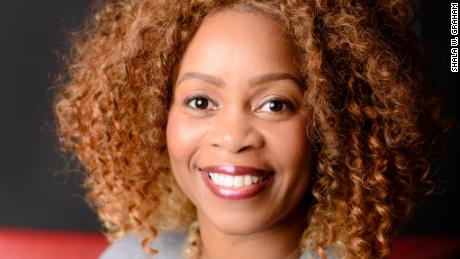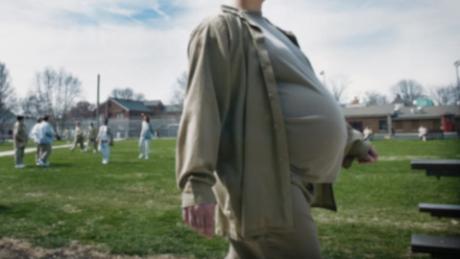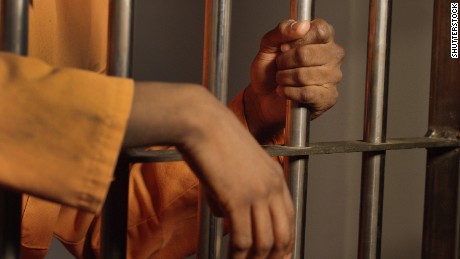 It's common to have sympathy or even empathy for mothers who have lost a child or their own mothers. What is less appreciated is the pain of mothers whose children are incarcerated. It's a pain that's difficult to describe: mourning, peppered with guilt, anger and anxiety.We know these feelings well. Our 19-year-old and 22-year-old sons are incarcerated. They respectively face 24 months for an armed robbery charge and 18 months for mishandling a firearm. Like most moms, we did everything we could to ensure bright futures for our children. Unlike most moms, we live in perpetual fear that talking about our sons' incarceration will be met with judgment.We face that fear by remaining silent. When others praise their children's success, we wish we could chime in and share success stories of our own. When someone asks us what colleges our boys attend, we sweat thinking through how we will answer the question.While we often choose silence, we know we are not alone. With 2.3 million people locked up in 1,719 correctional facilities, the United States imprisons more people per capita than any other nation, according to the Prison Policy Initiative.
It's common to have sympathy or even empathy for mothers who have lost a child or their own mothers. What is less appreciated is the pain of mothers whose children are incarcerated. It's a pain that's difficult to describe: mourning, peppered with guilt, anger and anxiety.We know these feelings well. Our 19-year-old and 22-year-old sons are incarcerated. They respectively face 24 months for an armed robbery charge and 18 months for mishandling a firearm. Like most moms, we did everything we could to ensure bright futures for our children. Unlike most moms, we live in perpetual fear that talking about our sons' incarceration will be met with judgment.We face that fear by remaining silent. When others praise their children's success, we wish we could chime in and share success stories of our own. When someone asks us what colleges our boys attend, we sweat thinking through how we will answer the question.While we often choose silence, we know we are not alone. With 2.3 million people locked up in 1,719 correctional facilities, the United States imprisons more people per capita than any other nation, according to the Prison Policy Initiative. Since our nation seems to favor punitive punishment, it's understandable that there is a stigma associated with those who have served prison time. We hear ad nauseam, "Do the crime, do the time," or "all they deserve is three hots and a cot."We believe in consequences, but we also believe in restorative justice. Since prisons aren't synonymous with rehabilitation, there has to be a way to allow persons who've made mistakes to make amends for misbehavior and receive rehabilitative help.Our sons' stories are different, but they share similarities. And in many ways, their incarcerations started long before they were physically confined. One suffers from childhood trauma and both experienced trauma from watching close friends succumb to gun violence. They both received some level of counseling but not nearly enough. We are hopeful that they and the millions of other incarcerated youth will receive services that will support their rehabilitation. We know that prisoners have higher rates of psychiatric disorders, and access to mental health and substance abuse services is essential.
Since our nation seems to favor punitive punishment, it's understandable that there is a stigma associated with those who have served prison time. We hear ad nauseam, "Do the crime, do the time," or "all they deserve is three hots and a cot."We believe in consequences, but we also believe in restorative justice. Since prisons aren't synonymous with rehabilitation, there has to be a way to allow persons who've made mistakes to make amends for misbehavior and receive rehabilitative help.Our sons' stories are different, but they share similarities. And in many ways, their incarcerations started long before they were physically confined. One suffers from childhood trauma and both experienced trauma from watching close friends succumb to gun violence. They both received some level of counseling but not nearly enough. We are hopeful that they and the millions of other incarcerated youth will receive services that will support their rehabilitation. We know that prisoners have higher rates of psychiatric disorders, and access to mental health and substance abuse services is essential. As we nurture our hope, we also carry a burden: the pain of our children. As other mothers of incarcerated children will attest, this pain is great. In sharing our thoughts around Mother's Day, we hope to brighten the day of despondent moms.Here are three important things we think parents of incarcerated children should keep in mind.1. It's OK to be happy. When our sons were arrested, we struggled with whether it was appropriate to be happy. We thought we had to wait until they were released before we could exhale. We thought it was unjust for us to be free, enjoying life, while they were behind bars.One of our mothers told us that we had to live. It was a simple statement, but it is also true. A big part of living has been choosing to find and accept happiness. Our happiness cannot be dependent on another person, including our children. This is a journey — but we are learning to give our children's missteps back to them to carry. We've learned that our refusal to find peace and happiness doesn't lighten their load, or ours.2. Use resources and reach out to other parents of incarcerated children. While it may be tempting to isolate yourself, we have found tremendous encouragement in a community of others who have walked or are walking the path we're on. In addition to personal networks, we recommend Parents with Incarcerated Children, a support group for parents, and a Facebook group called Mothers of Incarcerated Sons and Daughters. We also are active with campaigns that work to end mass incarceration in the United States such as LIVE FREE.3. Walking away is not an option. We've never been incarcerated but we've been told about how isolating an experience it can be. Some incarcerated individuals have no support system. One day, if they are released, no one will be there for them. We will not let this be the case for our sons. We will not abandon our responsibility as mothers — our sons will never age out of our families.Of course, not everyone feels the same way. Our sons' poor choices have caused rifts in other familial relationships and we are hopeful those broken relationships can be restored. However, we are clear that walking away is not an option. As anti-death penalty and public interest attorney Bryan Stevenson said, "Each of us is more than the worst thing we've ever done."Mother's Day for mothers of incarcerated children is a day of remembrance. It's also a day of gratitude for what was, sadness for what is and eternal hope for what will be.
As we nurture our hope, we also carry a burden: the pain of our children. As other mothers of incarcerated children will attest, this pain is great. In sharing our thoughts around Mother's Day, we hope to brighten the day of despondent moms.Here are three important things we think parents of incarcerated children should keep in mind.1. It's OK to be happy. When our sons were arrested, we struggled with whether it was appropriate to be happy. We thought we had to wait until they were released before we could exhale. We thought it was unjust for us to be free, enjoying life, while they were behind bars.One of our mothers told us that we had to live. It was a simple statement, but it is also true. A big part of living has been choosing to find and accept happiness. Our happiness cannot be dependent on another person, including our children. This is a journey — but we are learning to give our children's missteps back to them to carry. We've learned that our refusal to find peace and happiness doesn't lighten their load, or ours.2. Use resources and reach out to other parents of incarcerated children. While it may be tempting to isolate yourself, we have found tremendous encouragement in a community of others who have walked or are walking the path we're on. In addition to personal networks, we recommend Parents with Incarcerated Children, a support group for parents, and a Facebook group called Mothers of Incarcerated Sons and Daughters. We also are active with campaigns that work to end mass incarceration in the United States such as LIVE FREE.3. Walking away is not an option. We've never been incarcerated but we've been told about how isolating an experience it can be. Some incarcerated individuals have no support system. One day, if they are released, no one will be there for them. We will not let this be the case for our sons. We will not abandon our responsibility as mothers — our sons will never age out of our families.Of course, not everyone feels the same way. Our sons' poor choices have caused rifts in other familial relationships and we are hopeful those broken relationships can be restored. However, we are clear that walking away is not an option. As anti-death penalty and public interest attorney Bryan Stevenson said, "Each of us is more than the worst thing we've ever done."Mother's Day for mothers of incarcerated children is a day of remembrance. It's also a day of gratitude for what was, sadness for what is and eternal hope for what will be.
Original Article
[contf] [contfnew] 
CNN
[contfnewc] [contfnewc]






